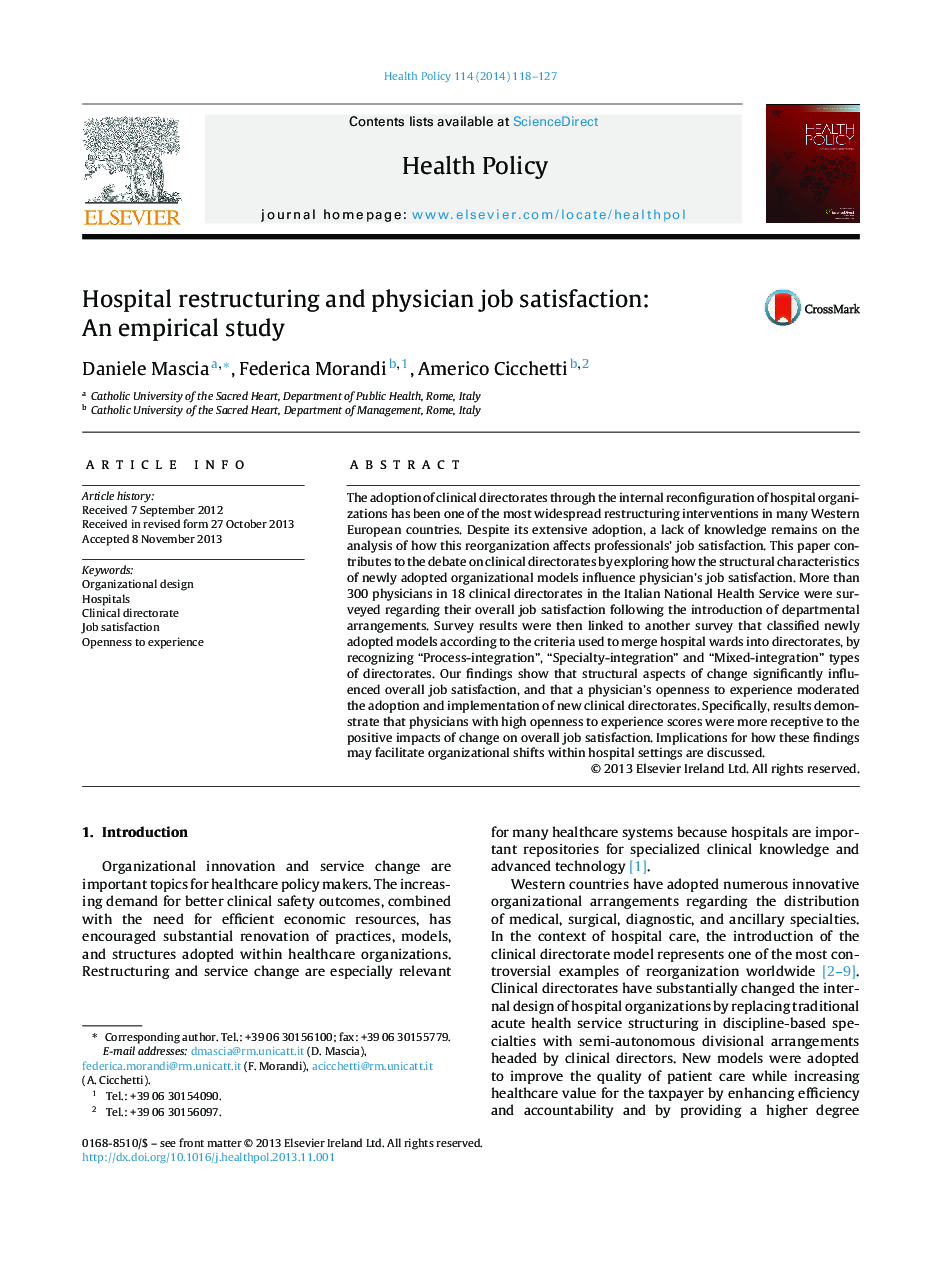| Article ID | Journal | Published Year | Pages | File Type |
|---|---|---|---|---|
| 6239321 | Health Policy | 2014 | 10 Pages |
The adoption of clinical directorates through the internal reconfiguration of hospital organizations has been one of the most widespread restructuring interventions in many Western European countries. Despite its extensive adoption, a lack of knowledge remains on the analysis of how this reorganization affects professionals' job satisfaction. This paper contributes to the debate on clinical directorates by exploring how the structural characteristics of newly adopted organizational models influence physician's job satisfaction. More than 300 physicians in 18 clinical directorates in the Italian National Health Service were surveyed regarding their overall job satisfaction following the introduction of departmental arrangements. Survey results were then linked to another survey that classified newly adopted models according to the criteria used to merge hospital wards into directorates, by recognizing “Process-integration”, “Specialty-integration” and “Mixed-integration” types of directorates. Our findings show that structural aspects of change significantly influenced overall job satisfaction, and that a physician's openness to experience moderated the adoption and implementation of new clinical directorates. Specifically, results demonstrate that physicians with high openness to experience scores were more receptive to the positive impacts of change on overall job satisfaction. Implications for how these findings may facilitate organizational shifts within hospital settings are discussed.
